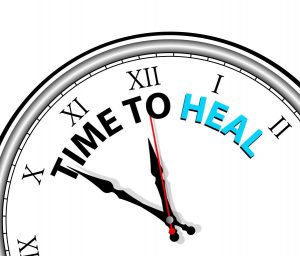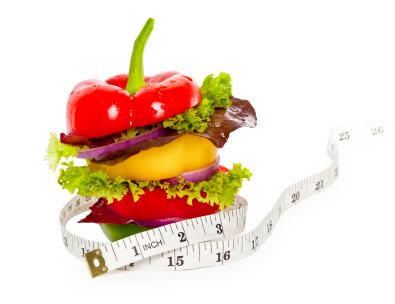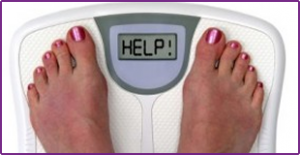Counselling for Binge Eating Disorder
What is Binge Eating Disorder?
Binge Eating Disorder or compulsive overeating is a condition that affects millions of people who have periods of uncontrolled, impulsive, or continuous eating beyond the point of feeling comfortably full. It is characterized by eating large amounts of food in a short space of time and often in secret and when not physically hungry (e.g. anything between1000-30,000 calories in one go) which is then followed by feelings of guilt, shame, despair and self-hatred.
Although Binge Eating Disorder shares some of the characteristics of bulimia including eating uncontrollably, unlike bulimia, individuals who suffer from this disorder do not purge, vomit or use laxatives to get rid of the food. Instead there may be periods of repetitive dieting or sporadic fasts as a way getting rid of calories consumed, but most typically there is no compensatory behavior. Body weight may vary from normal to mild, moderate or severe obesity which can lead to problems with blood pressure, heart disease, diabetes and a general lack of fitness or unhealthy lifestyle.
People who suffer from binge eating may struggle with depression, anxiety, loneliness and a sense of hopelessness which contributes to their compulsive and unhealthy relationship with food. Typically, food and eating is used as a coping mechanism, as a way of dealing with difficult emotions or to ease tension; although binge eating does temporarily relieve the stress of these overwhelming feelings, unfortunately it quickly spirals down to out of control and chaotic feelings. Sufferers find themselves trapped in a vicious circle of binge eating, followed by shame, low moods and despair which then lead to further episodes of binge eating.

If you’d like to find out more about therapy for an Eating Disorder please read here.

Call 07846989439
Are you a Binge Eater? Do you…
- Eat quickly and frequently in large quantities even if you’re not physically hungry?
- Feel out of control around food and cannot stop eating everything in sight?
- Eat when alone or in secret because you feel ashamed or embarrassed about the quantities of food you consume?
- Feel very self conscious eating in public or in front of others?
- Feel frustrated that you are unable to compensate for the food you’ve eaten?
- Feel ashamed, depressed or guilty after a bingeing episode?
- Suffer from mood swings & low self-esteem?
- Obsess about food, your body weight and shape?
- Lack energy and enthusiasm for life?
If you’ve answered yes to any of the above then you may be overeating because you’re stressed, have a low self esteem, or simply use food as a coping mechanism; or you may be overeating for emotional reasons and may have lost your ability to listen to your body’s natural signals of hunger and fullness. Instead of eating to satisfy your physiological hunger and stopping when you’re full, you may be eating to satisfy an emotional hunger or, as some clients describe, you may be “overeating to fill a deep sense of emptiness, sadness, loneliness”; or you may be binge eating in response to boredom, stress or anxiety thinking that only food can fill whatever void you may be experiencing in your life.
If this is you, then you may have discovered that overeating the “wrong” types of food (excessive amounts of sugar, salt, white flour products, processed foods) is having a negative impact on your physical, mental and emotional health, making food become part of the problem rather than it being a source of nourishment for mind and body.
Physical & medical symptoms of binge eating
- Obesity and weight gain
- Decreased mobility due to weight gain
- Sleeping problems
- Shortness of breath after light activity
- Fatigue
- High blood pressure and/or cholesterol
- Diabetes
- Heart disease
- Constipation & Bowel problems
- Poor or spotty skin
- Stomach pains
Behavioral & emotional symptoms of binge eating
- Suffering from depression and mood swings
- Fear of not being able to control eating and of not being able to stop eating
- Fear of eating in public or in front of others
- Eating even though full e.g. eating when not physically hungry
- Eating in response to emotions e.g. when feeling sad, lonely or bored
- Obsession with food, calorie counting, body weight & shape
- Being self critical or putting oneself down after eating
- Believing that food is their only friend
- Hiding food and eating in secret
- Blaming their size and weight for any issues in their social and professional life
- Believing that life will be better and they will be happier once they lose weight
- Feelings of shame, guilt and regret
- Low self-esteem, lack of confidence and assertion skills
It’s important to note that not everyone will have all of the above listed symptoms in order to have a serious eating disorder; each individual is different, and therefore will be experiencing a different set or a mixture of these symptoms. The side effects and consequences of binge eating disorder can be very serious and if left untreated can be damaging to your health. Therefore it’s important that you get a medical diagnosis and advice from your doctor.
For more details about therapy for other types of Eating Disorders, please read here.
Talking Can Help
To book an Initial Assessment please call 07846 989439 or fill in the main form here and I’ll get back to you as soon as I can.
I look forward to hearing from you.
Fill in the form to send me a general email. All fields marked with a * are required and to help prevent SPAM please solve the simple sum before submitting your message.
Disclaimer
If you have a specific medical problem or complaint, it is recommended that you seek help from your GP or medical practitioner before you seek counselling. This will allow you to have the necessary checks to determine whether your condition has a physiological or medical cause. More importantly, if such a condition is identified, then the appropriate medical intervention can be applied.
Your health may be compromised if you use any extreme weight control behaviours (even if occasionally) as there are many physical complications that can arise from extreme food restriction, fasting or losing weight too quickly, from self-induced vomiting, abusing laxatives/diuretics, as well as from extreme exercise.
If you think you might be suffering from an eating disorder it’s important to talk to you GP for a full medical check-up.

